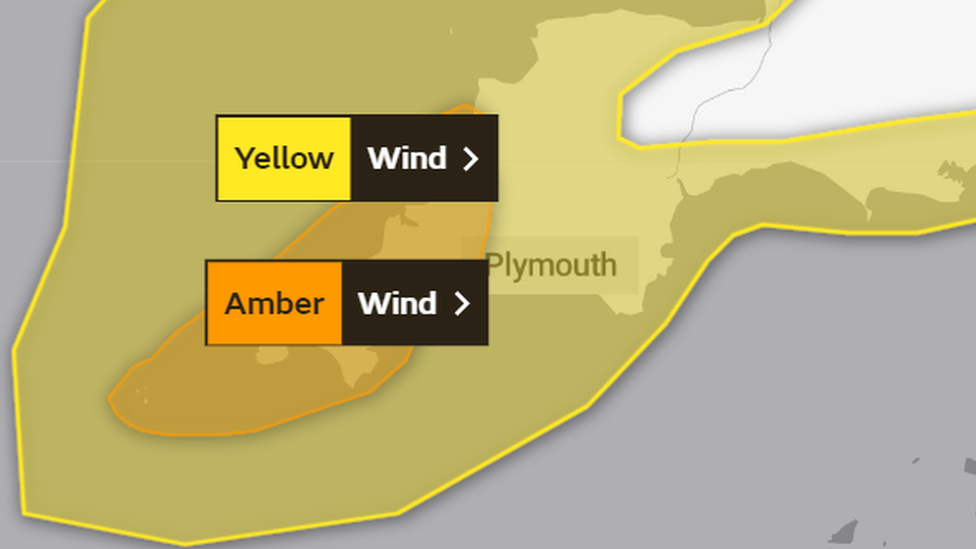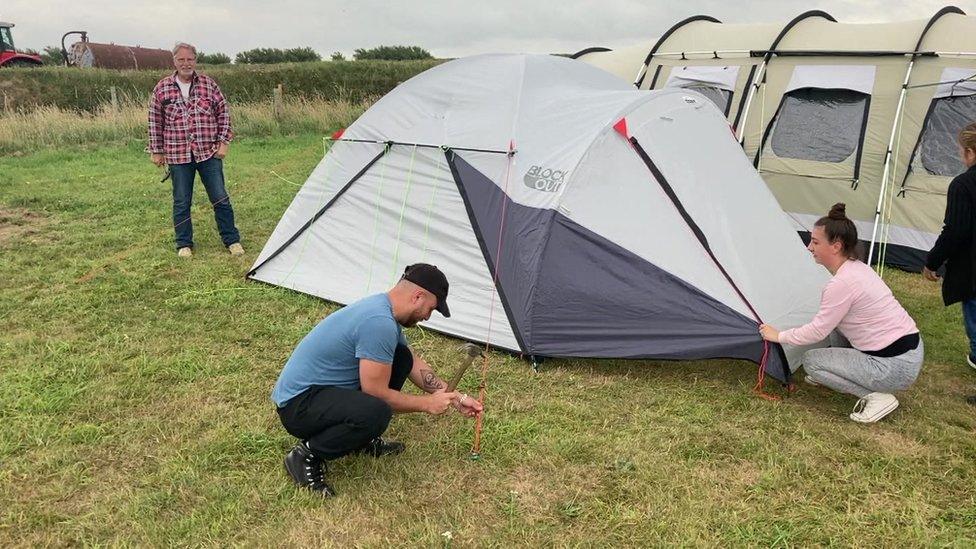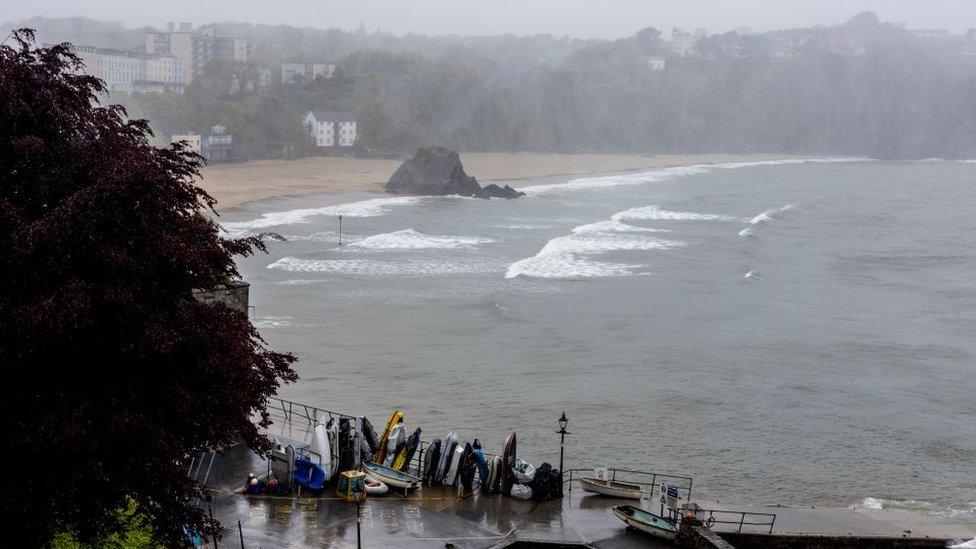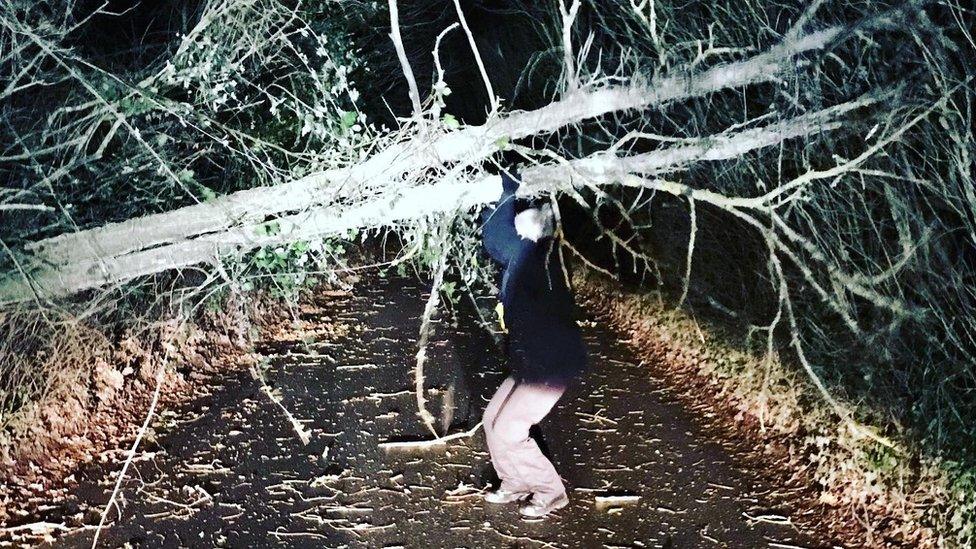Storm Evert: South West braced for 75mph winds and heavy rain
- Published

Amber and yellow wind warnings have been issued for Devon and Cornwall
The South West could be hit by winds of up to 75mph (121km/h) as Storm Evert hits the UK.
The Met Office has issued an amber warning for severe gales across the region, strong enough to damage buildings and disrupt travel.
The storm is also expected to hit the south Wales coast from Monmouthshire in the east to Pembrokeshire in the west.
BBC meteorologist David Braine said it was "exceptional" for this time of year.
Evert is the fourth storm to be named by the Met Office since October last year.
Allow X content?
This article contains content provided by X. We ask for your permission before anything is loaded, as they may be using cookies and other technologies. You may want to read X’s cookie policy, external and privacy policy, external before accepting. To view this content choose ‘accept and continue’.
Strong winds and heavy rains are expected to first hit the Isles of Scilly, before spreading over to Cornwall on Friday, the Met Office said.
The strongest winds, at 75mph (121km/h), could be expected in the county's "most exposed coastal spots", it added.
A yellow warning for strong winds has also been issued for parts of Devon and Wales.
It means the South West is likely to see fallen trees, damaged buildings, power cuts and travel disruption, the Met Office warned.

Campers at Bedruthan Steps in north Cornwall were moved to a field that is better protected from the wind
George Holtby at the Bedruthan Steps Campsite moved guests to a field that is better protected from the wind.
"It's an exposed site, so we're advising people to strap everything down and batten down the hatches," he said.
Sarah Weeks, of cliff-top glamping site Seaview Tipis at Bredruthan Steps in north Cornwall, urged guests to "pack up and go tonight because it's the safest thing".
Guests were being offered compensation or vouchers for later visits.

'Not a normal event'
Analysis by BBC meteorologist David Braine
Storm Evert approaching the South West of England is not a normal event.
This forecast strength of wind is unusual for July but it has happened before, for example during the Fastnet disaster in August 1979, when storm force winds hit the region.
The ingredients have to be right to produce high winds at this time of year.
They include low pressure forming and developing in the right place, the jet stream aligning and helping to develop the low pressure system at the surface, along with a warmer-than-normal sea surface temperature, and an unusually warm lower and middle atmosphere.
It may only be short-lived but Storm Evert has the potential to cause some damage.
Climate change has to be a consideration - whether we like it or not, this may be something we have to get used to.

Highways England warned drivers to take extra care as the storm moved in.
"In high winds, there's a particular risk to lorries, caravans and motorbikes so we'd advise drivers of these vehicles to slow down," said South West emergency planning officer Gareth Price.
"Drivers of other vehicles should be aware of sudden gusts of wind which can affect handling and braking, and give high-sided vehicles, caravans, and motorbikes plenty of space."

Follow BBC News South West on Twitter, external, Facebook, external and Instagram, external. Send your story ideas to spotlight@bbc.co.uk, external.
- Published29 July 2021

- Published9 December 2019
